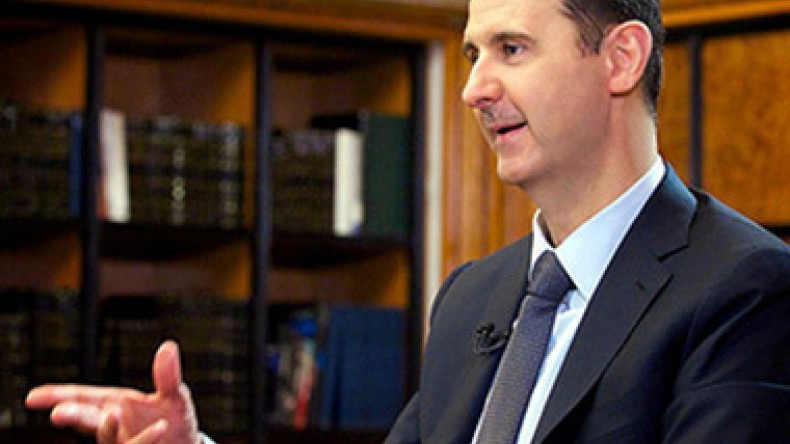
West doesn't want Syria's Assad to take part in transition process - expert
Russian FM Sergei Lavrov said that almost all the participants and organizers of Geneva-2 conference admitted the importance of Iran’s participation in the talks. Meanwhile the US is equipping its Cape Ray ship on board of which Syria’s chemical weapons are to be destroyed. The ship is to leave port in two weeks. The chemical weapons will be brought out of the country by February 4 and will be destroyed by the end of June. Deepak Tripathi, a British historian with a particular reference and numerous works on the Middle East region, gave VoR more details on the issue.
- What are the chances for Geneva-2 conference to "break the ice" in the Syrian standoff?
- The progress is definitely taking place, but it is slow. And I don’t think that the forthcoming round of talks will be the last one. There are some signs of progress. The Syrian Government has agreed to send a delegation, although who will come from the opposition side is not known, as you say.
But the progress is slow primarily because of the issue of the participation if Iran. The US has not yet agreed to that, while the talks with Iran are going on on the nuclear issue. I suspect it is because there is a concerted effort by pro-Israeli senators in the American Senate to impose further sanctions on Iran, which is quite a separate issue, but rather related.
And President Obama doesn’t want to inflame the situation in the American Senate, that’s why his administration cannot agree on the participation of Iran. But indirect talks will continue between Mr. Lakhdar Brahimi and the Iranians, if the Iranians can’t participate. And Iran’s participation is essential for Syria talks.
- Will the opposition have time to assemble a delegation, and will Islamists be part of it?
I think there is going to be a lot of arguments within the opposition groups. They are not united. At least outwardly, the Syrian Government is a single administrative unit and President Assad will decide, ultimately, who will be on the delegation. That is not the case on the opposition side. And there are signs that some will participate, others will not.
I must emphasize that there is some bad blood between the US and Saudi Arabia, and also between the US and Israel. And Saudi Arabia and Israel have some informal channels open between themselves. There are no official talks, of course, because they belong to different camps. But they have a common interest in toppling Hafez al-Assad in Syria. And therefore, the resistance from these countries poses some difficulties.
- What are the key issues that have to be addressed at the conference first and foremost?
Well, the war should be ended, because it has taken too many lives on both sides. Civilians have died in access of a hundred thousand according to estimates, and estimates are not accurate. And millions of refugees are living in appalling conditions, very difficult conditions in this winter not only in Syria, but also in Lebanon and Jordan, and other neighbouring countries.
So, it is a very grave humanitarian crisis. Therefore, the war should end. And the West has its own political agenda, although regional powers who are anti-Hafez al-Assad, like Saudi Arabia and Qatar, and others within the Arab League want Assad toppled. So, they want to talk about a transition simultaneously with the ending of the war.
Now, that is more difficult because Russia and China, and Assad himself will not agree to just step down. The transition will take a more complicated route – some sort of election – but the West and, at least, the hard-line groups on the opposition side do not want Assad to take part in any process of transition. And that is going to be the main difficulty.
Newsfeed
Videos






























